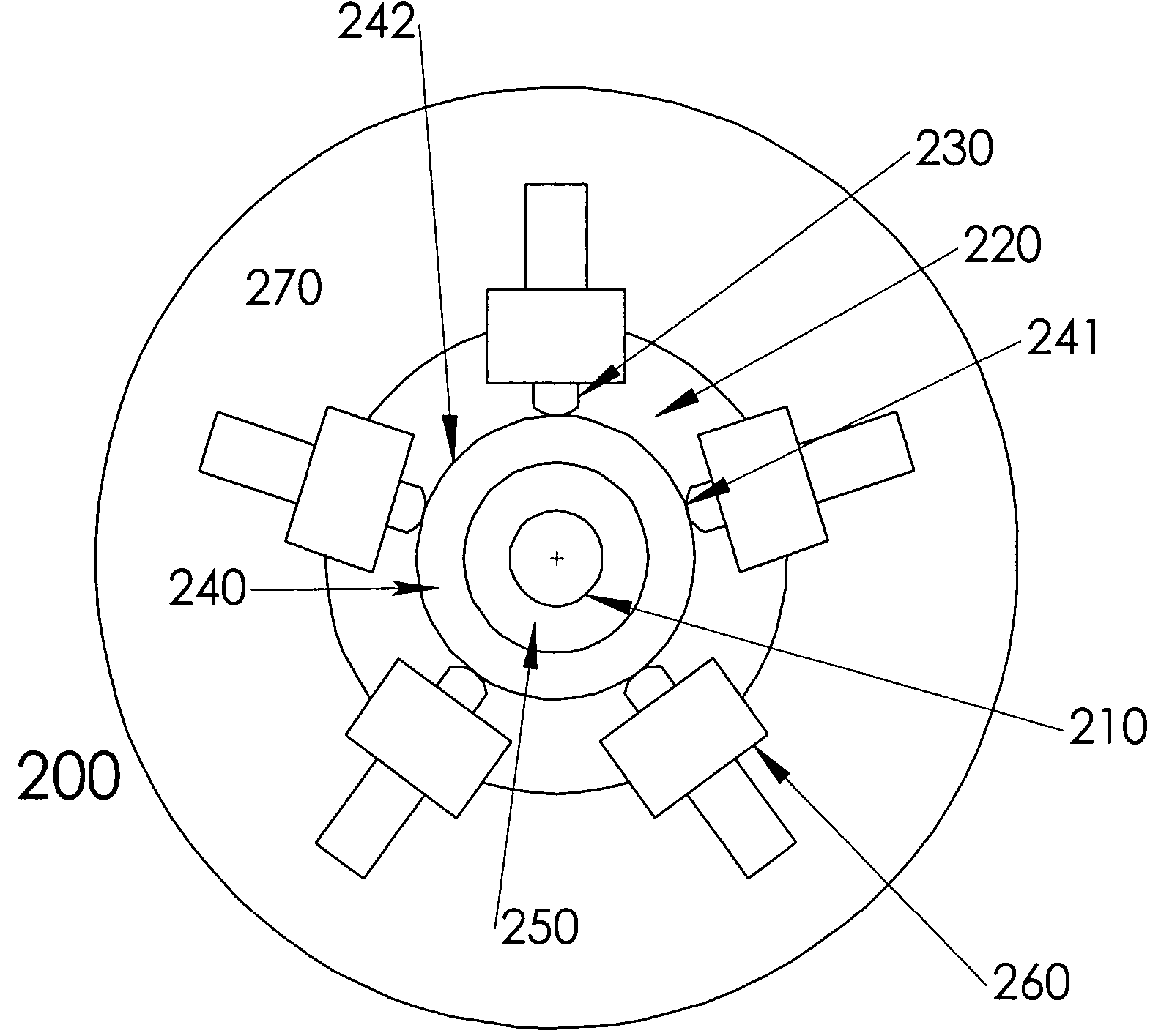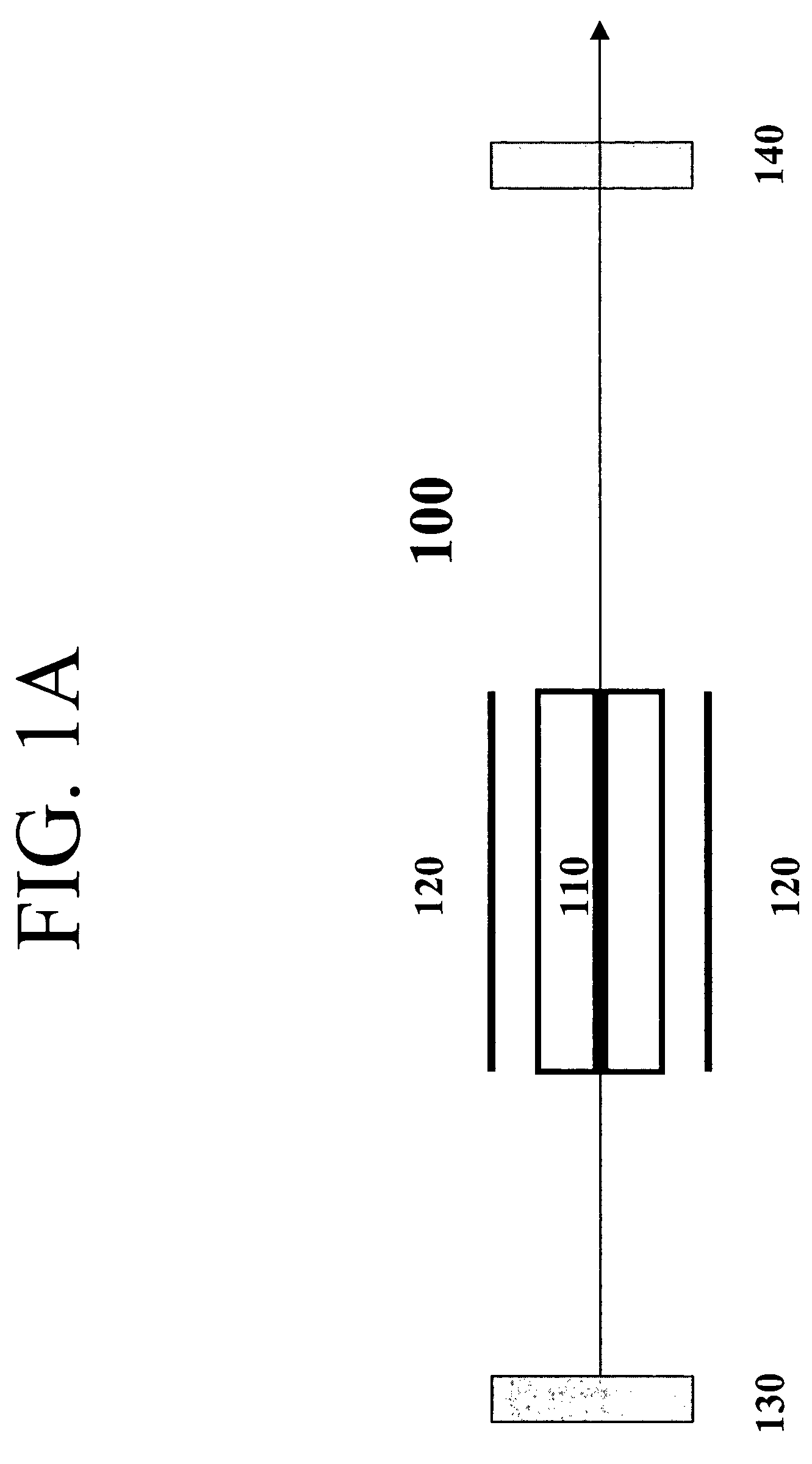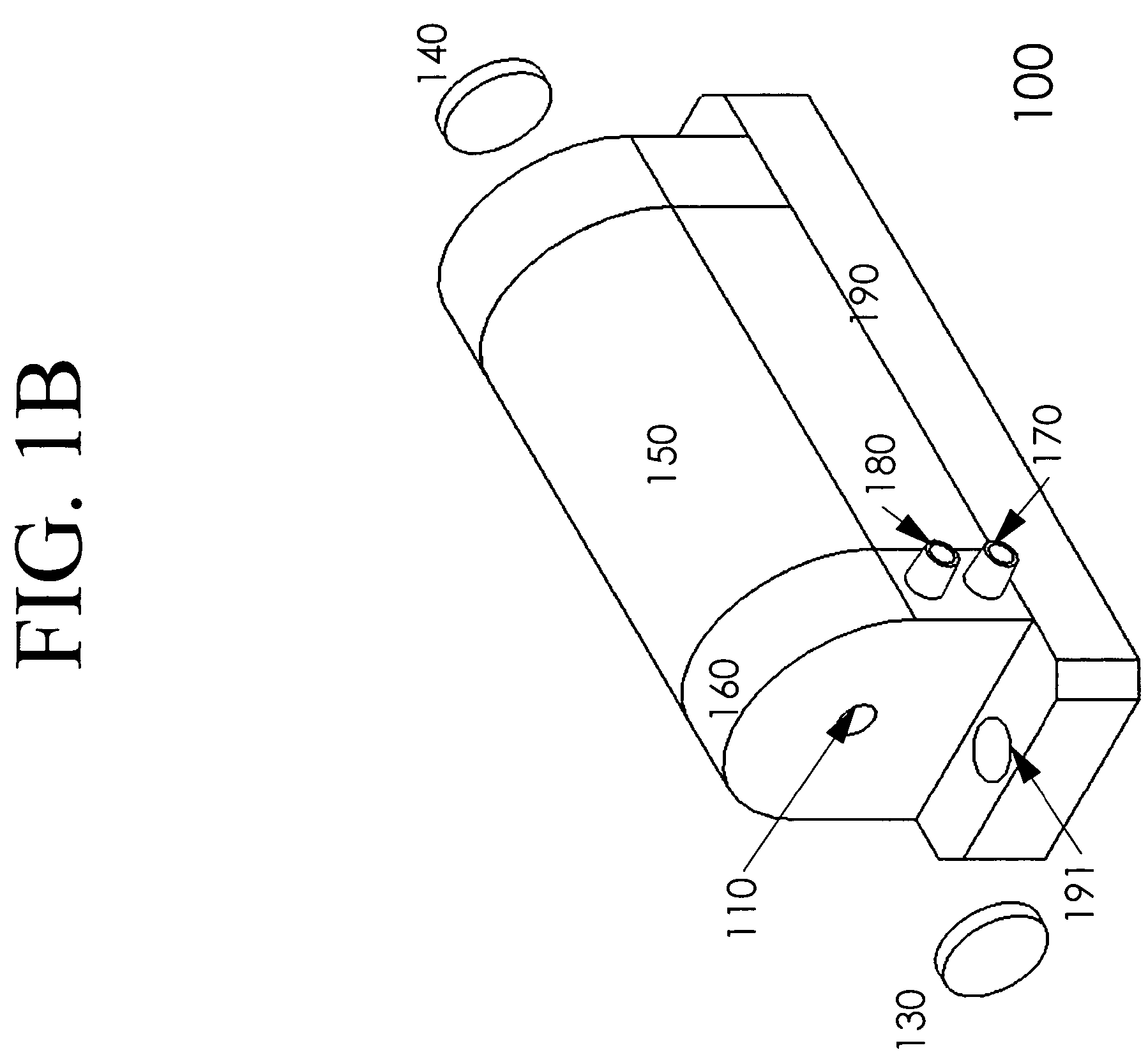Solid-state lasers employing incoherent monochromatic pump
a monochromatic pump and laser technology, applied in laser cooling arrangements, laser details, excitation process/apparatus, etc., can solve the problems of high trigger voltage, low coupling efficiency, and serious limitations of all pumping sources, and achieve low power consumption, high efficiency, and high efficiency.
- Summary
- Abstract
- Description
- Claims
- Application Information
AI Technical Summary
Benefits of technology
Problems solved by technology
Method used
Image
Examples
Embodiment Construction
[0039]Referring now to drawings and in particular to FIG. 1A, where an embodiment of a basic laser system 100, oftentimes called a “laser head”, is shown constructed according to the present invention. More specifically, an LED-pumped solid-state laser is illustrated therein.
[0040]When operational, laser gain medium 110 is pumped by LED arrays 120—disposed along a length of the medium 110. The output emission spectra of the LED arrays 120 are selected to suitably match the absorption spectrum of the gain medium 110, which has a characteristic broadband absorption. A resulting laser oscillation is generated in a laser or oscillation cavity formed between a highly reflective (HR) mirror 130 and an output coupler 140. As can be readily appreciated by those skilled in the art and as will be discussed in greater detail later, the selection of LED array output, laser gain medium, configuration, and operation mode, is a matter of design choice and highly flexible with our inventive teachin...
PUM
 Login to View More
Login to View More Abstract
Description
Claims
Application Information
 Login to View More
Login to View More - R&D
- Intellectual Property
- Life Sciences
- Materials
- Tech Scout
- Unparalleled Data Quality
- Higher Quality Content
- 60% Fewer Hallucinations
Browse by: Latest US Patents, China's latest patents, Technical Efficacy Thesaurus, Application Domain, Technology Topic, Popular Technical Reports.
© 2025 PatSnap. All rights reserved.Legal|Privacy policy|Modern Slavery Act Transparency Statement|Sitemap|About US| Contact US: help@patsnap.com



